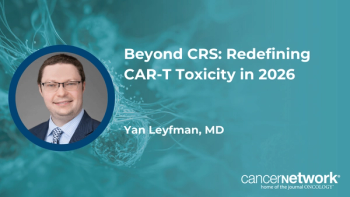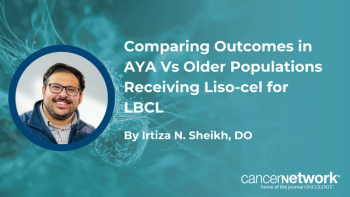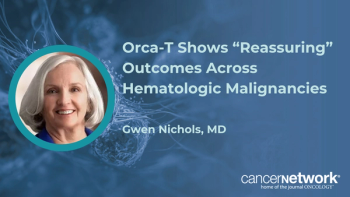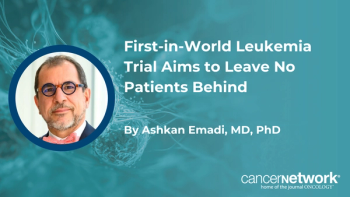
Post-Transplant TKI Maintenance Yields Promising Results in High-Risk CML, ALL
Maintenance therapy with TKIs following allogeneic HSCT is feasible and may improve outcomes in patients with high-risk Philadelphia chromosome–positive leukemia.
Maintenance therapy with tyrosine kinase inhibitors (TKIs) following allogeneic hematopoietic stem cell transplantation (HSCT) is feasible and may improve outcomes in patients with high-risk Philadelphia chromosome–positive (Ph+) chronic myeloid leukemia (CML) and acute lymphocytic leukemia (ALL), according to results of a small, retrospective study.
“Given that allografting is increasingly being performed in patients in whom first-line and later TKI therapy has failed, data on the safety and efficacy of newer generation TKIs administered after transplantation would be of great interest,” wrote study authors led by Hanna J. Khoury, MD, of Emory University School of Medicine in Atlanta.
The new study was a retrospective analysis that included 26 patients, 9 with accelerated- or blast-phase CML and 17 with Ph+ ALL. Patients received maintenance therapy after transplantation with imatinib (10 patients), dasatinib (14 patients), nilotinib (1 patient), or ponatinib (1 patient). Patients receiving the newer generation TKIs began treatment at ≥ 50% reduced dose from standard dosing, to limit toxicities. The results were
TKI therapy was initiated a median of 100 days after transplantation, and administered for a median of 16 months; the study’s total follow-up period was a median of 3.6 years. All patients were in molecular remission at the time of TKI initiation. Notably, 38% of the cohort was deemed resistant to first-line TKIs before transplant.
The 5-year relapse-free survival rate was 61% in all patients, and the 5-year overall survival rate was 78%, which the authors called “encouraging.” Three patients developed a relapse during maintenance TKI therapy (two hematologic and one molecular relapse). All three of those patients received salvage therapy, and all were in complete remission a median of 2.5 years following the relapse.
Eight patients discontinued the TKI therapy due to toxicity; these were in patients receiving dasatinib exclusively. The adverse events that led to discontinuation included fluid retention, pleural effusions, transaminitis, thrombocytopenia, and diarrhea. There were no relapses observed in these patients.
One patient developed grade 3/4 acute graft-vs-host disease (GVHD), and eight patients developed severe chronic GVHD. Three septic deaths occurred in the first year following transplantation (all Ph+ ALL patients), and three died due to chronic GVHD/organ failure (all CML patients).
The authors noted that the favorable overall survival outcomes can be attributed largely to selection bias, favoring patients who survived long enough to start maintenance TKI therapy and those with excellent pre-transplant responses.
“These preliminary results argue that the role of maintenance post-transplant TKIs in advanced-phase CML deserves further evaluation in prospective trials,” the authors concluded.
Newsletter
Stay up to date on recent advances in the multidisciplinary approach to cancer.



















































